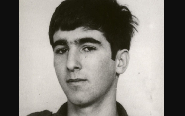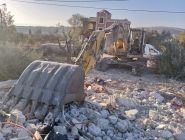Wednesday’s non-binding parliamentary consultations began with the notable absence of Speaker of Parliament Nabih Berri, who was expected to meet with Prime Minister-designate Nawaf Salam before the beginning of discussions with MPs.
Instead, consultations were launched by Deputy Speaker Elias Bou Saab, who commended Salam’s “unconventional approach” to his new role. He emphasized that Salam carries the responsibility of pursuing comprehensive change while ensuring political balance and inclusiveness across all factions.
In this context, Bou Saab reassured that discussions between Speaker Berri and Salam were ongoing and progressing smoothly, despite Amal and Hezbollah’s decision to boycott the consultations.
Salam later met with members of the Change bloc, including MPs Marc Daou, Waddah Sadek and Michel Douaihy. Speaking after the meeting, Douaihy stated, “We discussed the government’s structure and its mechanisms of action, which must align with the ambitions of the Lebanese people.”
Douaihy advocated for a reduced cabinet composed of new political figures, including women, which breaks away from traditional partisan quotas and outdated political frameworks. “The priority,” he added, “is to achieve national consensus and begin the country’s rescue process.”
Moreover, Progressive Socialist Party leader Teymour Joumblatt underscored the urgency of the moment, declaring that “we have an exceptional opportunity to build a new state.” He also emphasized the importance of maintaining open communication with all political forces to ensure that “no one can cancel out the other.”
MPs from the Independent Parliamentary Gathering, formerly members of the Free Patriotic Movement (FPM), including Elias Bou Saab, Simon Abi Ramia, Ibrahim Kanaan and Alain Aoun, said that Salam has expressed a desire to establish open dialogue with all parties.
“We hope that there will be fruitful collaboration, and with this common will, we can overcome the obstacles before us,” Kanaan said, stressing that the ultimate goal remains to “save Lebanon.”
For its part, the National Moderation bloc asserted that the most important thing is “the formation of a government that represents all the components of the country and that will enable the construction of a new Lebanon.”
After its meeting with the prime minister-designate, FPM’s Strong Lebanon bloc, led by Gebran Bassil, expressed its willingness to support the government.
“We must rally around the prime minister and President Joseph Aoun. We have a real opportunity to restore balance in the country, establish a genuine partnership and undertake the necessary reforms,” said Bassil.
“The designation of Nawaf Salam is not a defeat for anyone,” he added.
Bassil continued, “We reject any form of exclusion or marginalization. In the ministerial declaration, we demand the implementation of resolution 1701, a lasting ceasefire, and the extension of state authority over all Lebanese territory.”
Additionally, he stressed the importance of the rapid return of displaced Syrians to their homeland.
He also insisted on financial reform, “which must be achieved through forensic audits, the restructuring of the banking sector and the return of funds to depositors.”
The parliamentary consultations, to be held over two days, resumed in the afternoon after a lunch break.



Comments